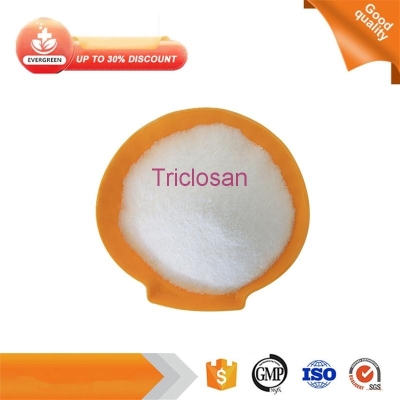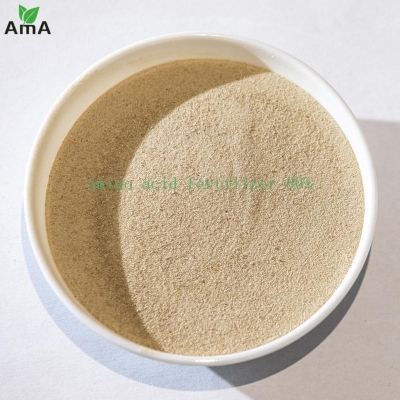-
Categories
-
Pharmaceutical Intermediates
-
Active Pharmaceutical Ingredients
-
Food Additives
- Industrial Coatings
- Agrochemicals
- Dyes and Pigments
- Surfactant
- Flavors and Fragrances
- Chemical Reagents
- Catalyst and Auxiliary
- Natural Products
- Inorganic Chemistry
-
Organic Chemistry
-
Biochemical Engineering
- Analytical Chemistry
- Cosmetic Ingredient
-
Pharmaceutical Intermediates
Promotion
ECHEMI Mall
Wholesale
Weekly Price
Exhibition
News
-
Trade Service
On December 28, 2020, a notice was posted on the website of the National Health Insurance Administration to issue the National List of Essential Medical Insurance, Industrial Injury Insurance and Maternity Insurance Drugs (2020), and the final results of the health care negotiations surfaced.
this year's health care negotiations a little more than a big wave of feeling.
compared with the 2020 National Health Insurance Drug Catalog Adjusted List of Declared Drugs, which was released in advance and included 751 products, the 162 drugs that eventually entered the health care negotiations were carefully selected.
119 successful negotiations, also set a new record for health care negotiations.
health-care negotiations, which began in 2016, are now the "year-end test" of the drug world.
access to health insurance is the dividing line between life and death for many products.
now that the health care negotiations have been going on for five years, they are showing their own trends.
health insurance will also have an impact on related peripheral industries, such as the fast-growing commercial health insurance circuit.
Arterial Network, by collaging data related to the health care negotiations of the past few years, has identified some information points in the health care negotiations: 1.2020 average decline is lower than in 2019, the success rate has rebounded; 2. The information disclosure changes again, the disclosure through the formal review list, still does not disclose the final price of some drugs, the cancellation of the disclosure into the health care negotiations; 3. The new health insurance catalogue drug negotiations, 14 kinds of success, but None of them appeared on the list of pass-through formal reviews; 4.4 domestic PD-1 single-resistance units entered health insurance; 4 imported PD-1/PD-L1 single-resistances were defeated; 5.2018 health insurance negotiations for renewal of 13 products were successfully renewed, the remaining 4 did not appear in the form review list; 6.
these key points might mean? What is the impact on the insurance industry as a whole? We'll do this analysis in this article.
the end of the exploration period, gradually entered a steady state of development from the development of health insurance negotiations in recent years, the price reduction and success rate are stable.
in the past four years, regardless of the special circumstances of only three drugs in 2016, the success rate of health care negotiations in 2019 was the lowest of 64.67 percent, while the average decline peaked at 60.70 percent.
2020 health-care negotiations, the success rate is higher than in 2019, and officials have not disclosed exact figures for the decline, but the disclosure of "more than 50 percent" may not exceed the 2019 decline.
same time, this year's health care negotiations have made new changes, including 14 kinds of health insurance list drugs, each of which occupies more than 1 billion yuan of health care funds.
official information that the drugs "have been in the health insurance list for a long time, the related research and development costs have long been recovered, with room for price reduction."
", so the 2020 health care negotiations can be said to be a summary of the results of the past few years, but also a new beginning.
health-care negotiations did not push the decline any further, sending several messages: 1. National Health Care is confident in future fund management: 751 drugs have been formally reviewed in this year's health-care negotiations.
162 drugs entered the negotiation process and 119 successfully negotiated, all reaching record highs.
the issue of "medicare bottoming", which had been so well-publiced in previous years, was gradually not frequently mentioned under the dual charges of collection and health care negotiations.
the scale of this year's health-care negotiations has been magnified again, conveying confidence in the state's ability to control fees further in the future.
health care negotiations will continue to be the first threshold for new drug products, especially new speciality products, to enter health care quickly.
. Health care negotiations are steady: from this year's data disclosures, the health-care negotiations did not require further drug declines, but remained largely on the average for the past three years.
decline in drug prices may also be reflected in the proportion of successfully negotiated drugs.
The delicate balance between the "low success rate, high decline" in 2019 and the "high success rate, low decline" in 2017 suggests that future health care negotiations may remain stable in the volatile range of the past few years.
3. The list of drugs in the list joined the negotiating queue: this year's negotiations included 14 medicines in the health insurance list, and 14 were successfully negotiated.
, and the 14 products are not even on the previously disclosed list of pass-through reviews, are a proactive effort by Medicare to push for further price cuts for drugs in the catalog.
if this action becomes stable, it could become the third-largest path for drug control fees in health insurance after volume procurement and catalog access negotiations.
4. Further improvement of the information disclosure system: this year's health care negotiations information disclosure, compared to 2019 on the basis of the addition of a formal review list disclosure, to maximize the public's supervision of information;
as a whole, it can be said that while under public scrutiny, all pharmaceutical companies involved in the health care negotiations should be given maximum privacy and respect.
addition to this, there are some key points of concern.
17 drugs that entered health care through health-care negotiations in 2018 have also undergone a new round of negotiations this year.
13 drugs were eventually successfully renewed, and four others were not on the health insurance agency's newly disclosed list of "negotiated drug parts during the agreement period."
network found that none of the four drugs that had been successfully renewed appeared on the list of 751 drugs that had passed the formal review.
Considering that formal review is only a preliminary examination of the completeness of the material, and that the original research enterprises of these four products are also the world's top pharmaceutical companies, experienced in health care negotiations, the likelihood of material problems is relatively low, the greater the possibility is that pharmaceutical companies themselves choose to give up product renewal.
script is the same as it will be in 2019.
the 2019 negotiations, four varieties of successful renewal drugs negotiated in 2017 also failed, as did four international giants.
in this year's health-care negotiations, two of the drugs, fluorovis injections and tovaputan tablets, appeared on the list of formal reviews, but failed to make it to the health-care list.
By contrast, all 13 renewal drugs that passed a formal review this year were successfully renewed, and although only three drugs disclosed the final negotiated price, only three of them were successfully renewed without further price reductions.
this once again confirms the prediction that the health care negotiations we talked about earlier will stabilize.
can be negotiated without lower drug prices, which could mean that the agency believes the current price is already matched to the clinical value of the drug and does not require further price cuts.
also shows that the health care negotiations are not like the "price theory" of volume procurement, so that drug prices and the clinical value of drugs to match, so that health insurance can cover a wider range of patients on an affordable basis, is the ultimate goal of the health care negotiations.
four domestic PD-1 gathering health insurance, health insurance to the domestic new drug enterprises how important? At the heart of the 2019 health-care negotiations is whether PD-1 singles will be able to get health care.
the end result is four negotiated products, with only Xinta Bio's Xindili mono-resisting one passing the health-care negotiations.
And in 2019, there will be four new faces in the PD-1/PD-L1 single-resistance army that has rocked the health-care negotiations, namely, Henrik Pharma's Karelli Pearl Single Resistance, Baiji Shenzhou's Tyreli Pearl Single Resistance, AstraZeneca's Dovalliu Monomason resistance and Roche's Atili Pearl Single Resistance.
seven products, with the exception of TheNdili Mono-Resistance, appeared in the through-form review catalogue, but the end result was marked polarization.
three domestic PD-1 single resistances were successfully entered into health insurance, but the final price was not disclosed, while the four imported PD-1/PD-L1 single resistances were all defeated.
into the health insurance for domestic new drugs how important, from several already listed products on the trend can be roughly seen.
, which were also approved at the end of 2018, have come out of a different sales trend in the year and a half since they went public.
the end of February 2019, the PD-1 monoantials of Regenerant and Xinda Bio officially entered the market with the first prescription almost simultaneously.
, despite some differences between the two, Toyi and Dabershu ran in the first wave of sales in the first half of 2019.
health care negotiations, Dabershu's sales grew rapidly, not only significantly outsuring Junshi, but even nearly flattening its full-year 2019 sales in the first half of 2020.
changes in sales will naturally be influenced by Thyme's marketing strategy, but medicare payments also play an irreplaceable role.
micro-core creature, has successfully entered the health care list as early as 2017 and has successfully renewed its contract in 2019.
after two negotiations and two price cuts, sales at Epsod have been steady over the past few years.
for a new drug that has been on the market for five years, clinical use is stabilizing and can continue to grow in this situation, and health care is crucial.
, on the other hand, Goliath Pharmaceuticals is the opposite, with its core product, Gonowe, losing health care negotiations in 2019 and failing to get into health care.
to the first half of 2020, sales of Gonovir have plummeted, between the failure of health care and the new crown outbreak, coupled with the complex market environment for anti-AIDS drugs.
in this year's health-care negotiations, Gonover (Dano River sodium tablets) and New Lile (lavidawe hydrochloride tablets) have lost back-to-back.
for domestic new special drugs, most of the domestic products are only approved at home, did not enter the overseas market.
, as the most powerful payer in the country, has almost become a "death order" for these new domestic drug companies.
so this time four domestic PD-1 single anti-gathering health insurance, basically still expected.
For the Health Insurance Bureau, the inclusion of these same-target products into health insurance, on the one hand, is consistent with the general direction of the country to promote the development of the new special drug industry, on the other hand, for further negotiations on these products for the future.
the path of health insurance negotiations on imported products, four imported PD-1/PD-L1 were all defeated.
Combined with the data we analyzed earlier, the eight products that failed to renew the 2019-2020 contract are all imported products, and even six may voluntarily abandon this year's health care negotiations, which appear to be going very well in the health care negotiations."
(which may not be accurate based on publicly available statistics), we have looked at some statistics and found that the average decline in imported products was actually significantly higher than the average decline in domestic products in the drugs successfully negotiated for health care in 2017-2019.
considering the process of health care negotiations, the drug companies' first two offers could not be higher than the health insurance agency's expected price of more than 15%, in order to have the opportunity for further price negotiations.
likely that the health insurance bureau's expectations for a decline in imports are generally higher in themselves than those of domestic products.
may also be one of the reasons why it is more difficult to negotiate health insurance for imported products.
health insurance bureau's high expected prices, and the import of drugs itself high prices can not be linked.
Most of these imported drugs are new special drug products, which are caused by high prices, in addition to basic tariffs and transportation costs, there are three main aspects: 1. Recovery of research and development costs: new special drug products from early research and development to clinical research and development, the need for a lot of capital support.
Therefore, after the successful launch of the product, the subsequent sale of drugs not only to cover their own production and marketing costs, but also to cover the cost of drug research and development process, even including the cost of some of the failed drug research and development costs.
the best time to sell a new special drug, years between the drug's launch and the expiration of the patent.
to recover a lot of costs quickly in a short period of time, almost at a high price.
2. Low bargaining power of the payer: most of the new specialty drug products are cut into the current lack of high-quality solutions in the field of treatment, is the patient's rigid products, forming a similar to the "monopolistic" nature of the solution situation.
in such an environment, patients have little bargaining power over treatment options.
even if the drug companies offer sky-high prices, patients will have to accept them.
of course, pharmaceutical companies will take into account the audience's ability to pay and the net interest rate on drug sales to design product prices, but the decision is ultimately in the hands of pharmaceutical companies.
: The pharmaceutical market is a global market, the United States as the world's largest pharmaceutical market, drug prices are also the highest.
pharmaceutical companies need to balance the prices of products in the global market while considering domestic prices.
domestic products can be slightly lower, but not too low overblown.
"Patient Assistance Program", which is often used in China for cancer drugs, also takes into account the affordability of domestic patients and seeks pricing space and balances global prices by giving them away.
a number of reasons to consider, although the production cost of new special drugs is not high, but for many reasons, pharmaceutical companies still have to sell at high prices.
also means that multinational drug companies need to think in all directions as they participate in health-care negotiations, making it difficult to agree with the NHS's expectations on pricing some drugs.
and this situation is unlikely to be alleviated in the short term.
still to PD-1/PD-L1 mono-resistance as an example, PD-1 single-resistance and domestic products can be replaced, but the defeat of the two PD-L1 mono-resistance, or affect the treatment options of many patients.
how to solve the problem of health insurance for these products, especially in the face of the influx of new drugs from around the world into the domestic market







